Article by: Gord Goble
Sometimes, what starts out slowest ultimately delivers the biggest reward.
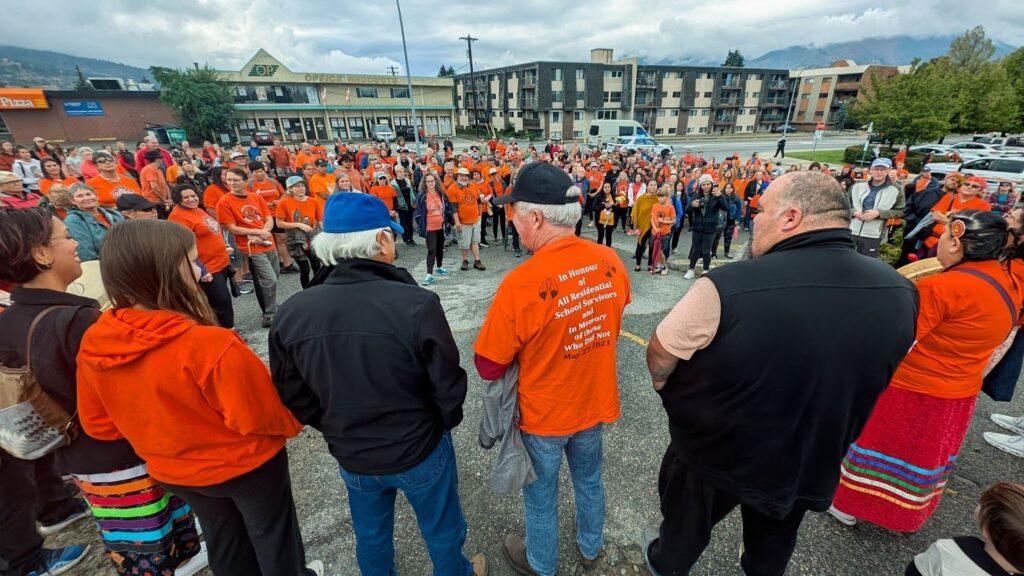
Such was the case Tuesday in Penticton/snpintk’tn during the fifth annual Walk for the Children.
The event, co-organized by the Okanagan Nation Alliance (ONA) and Penticton Indian Band (PIB) and involving a two-kilometer walk from mid-town to the Syilx Indian Residential School Monument on the PIB reservation, has become one of the most significant commemorations in the Okanagan of the Sept. 30 National Day for Truth and Reconciliation.
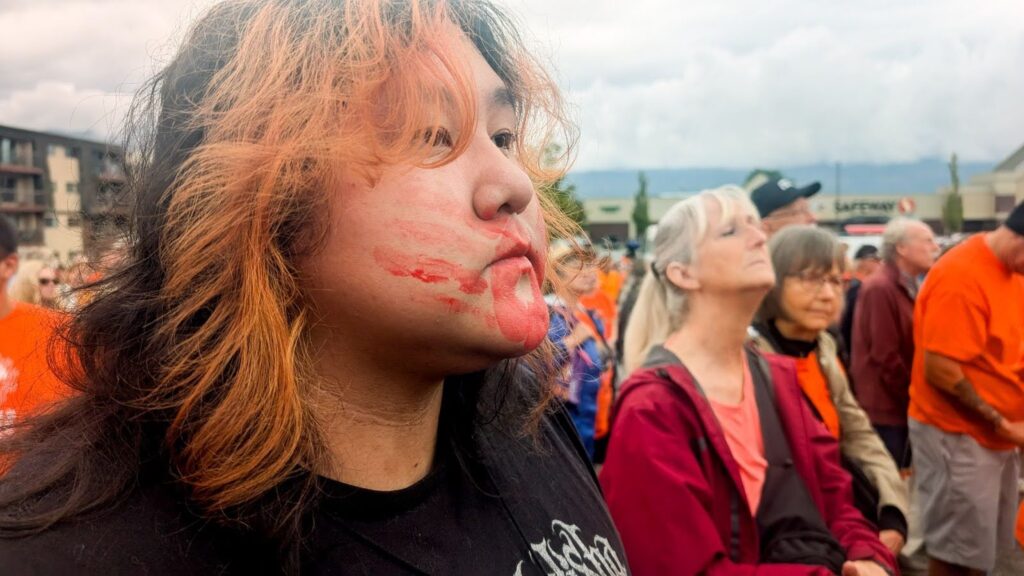
But the 2025 iteration would have to go some to top the year prior, when a record crowd of 500 or more made the trip.
And if you showed up early Tuesday morning to the Safeway parking lot kickoff spot, you’d be forgiven for thinking the 2024 throng was merely a blip. Just fifteen minutes prior to the opening drumming and remarks, only small handfuls of people dotted the pavement.
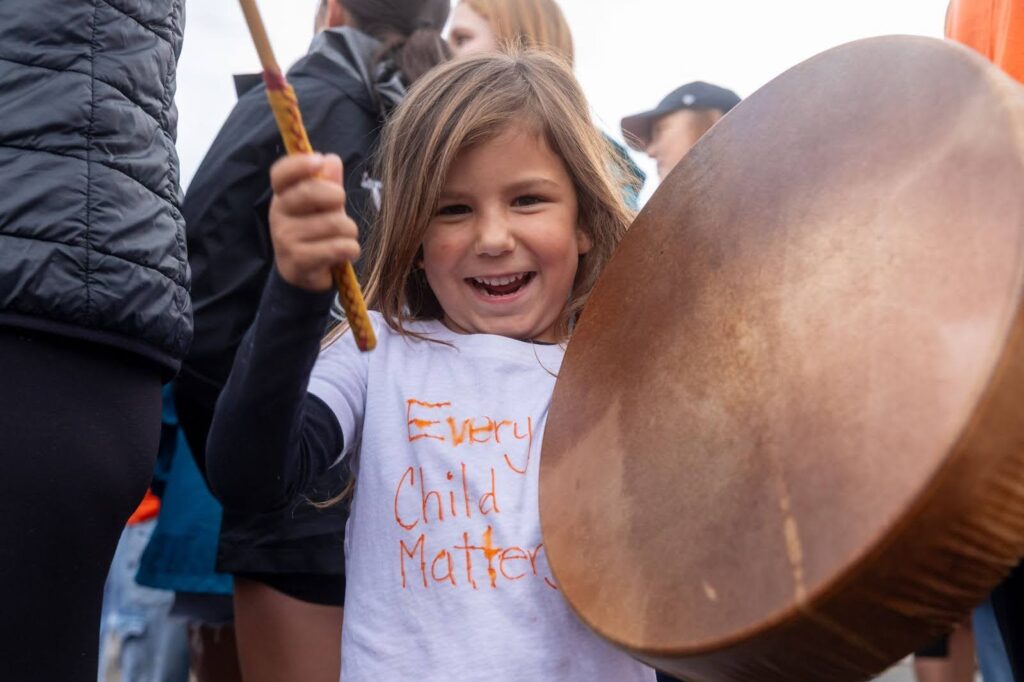
But suddenly the flood gates opened. And in just a few minutes, hundreds of willing participants had poured through.
By the time the march began, the crowd, an inspiring mix of cultures, ages and genders, once again approached that 500 mark.
For people like Sienna Gabriel of the PIB, the turnout was heartening.
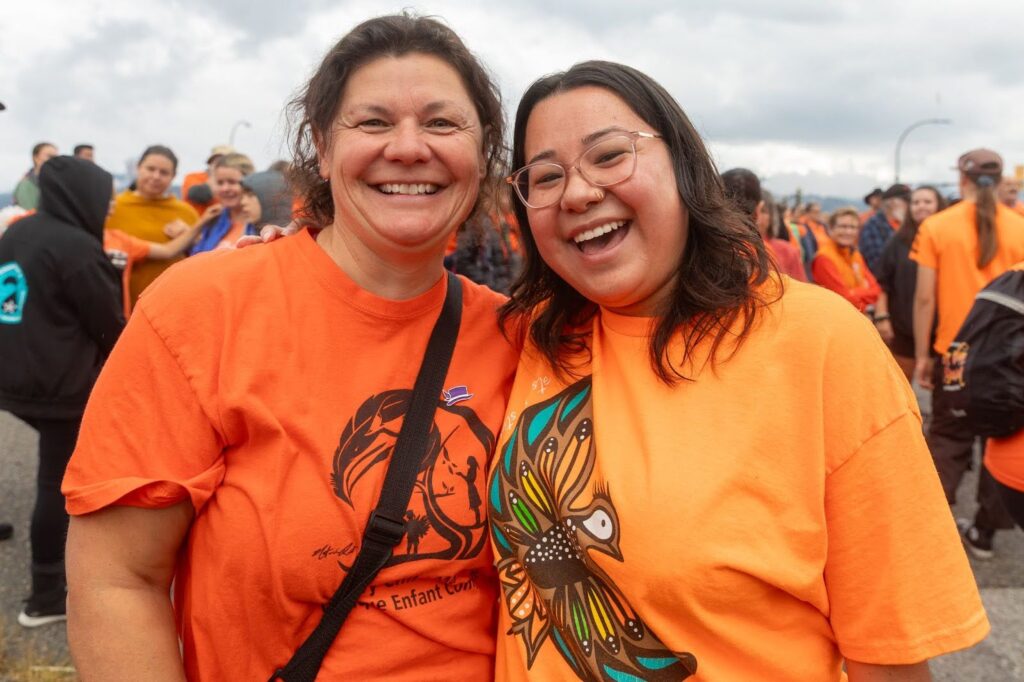
“My grandpa was taken to the Cranbrook residential school when he was five years old,” she told us.
“And my family knows all the things that happened to him. His loss of language, his loss of connection to culture, his loss of connection to family.
“And all the things we struggle with in my family – the addiction rates, the suicide rates – for me it’s really important to show everyone that we’re still here, that we have a place. And all that happened to our family through the residential schools wasn’t for nothing.”
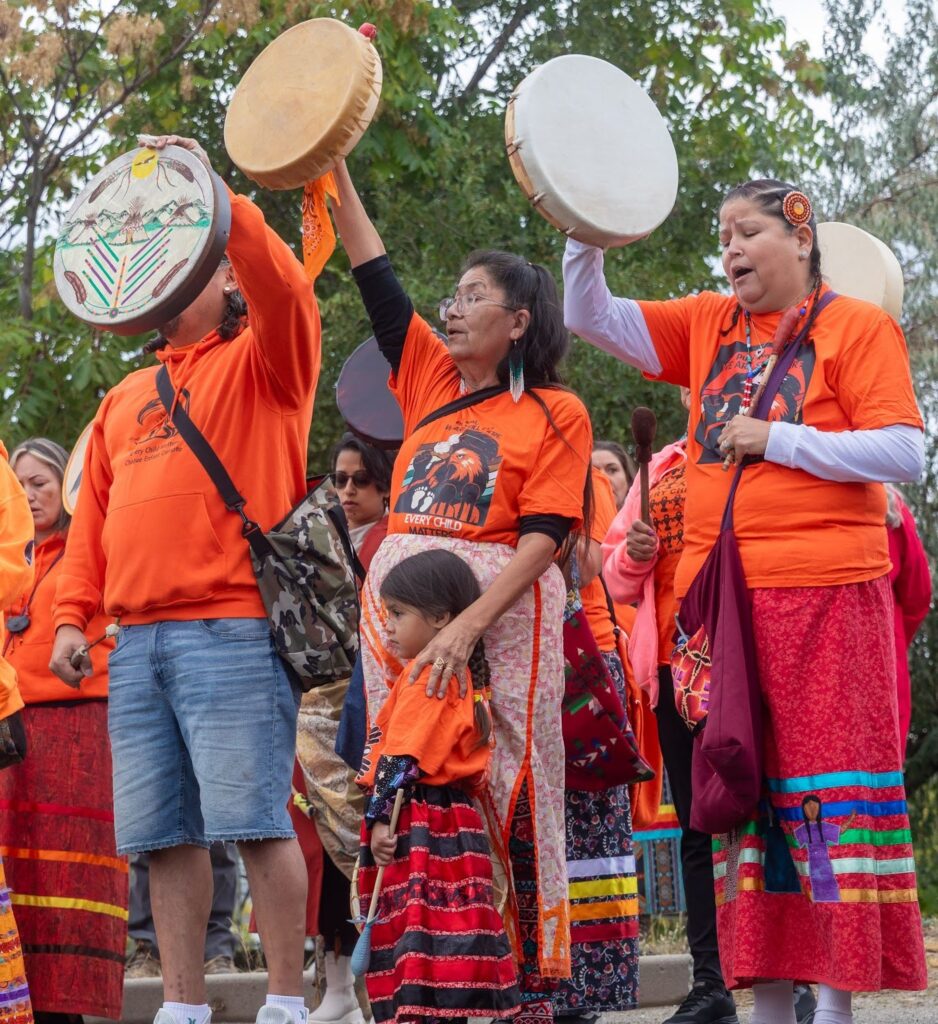
But Gabriel believes the event goes beyond residential schools.
“I think the walk today also stands for all the things that are happening within Indigenous communities and to Indigenous people,” she said.
“It’s a really scary time to be Indigenous. How do we build a safer place, not just for our people but for all peoples.”
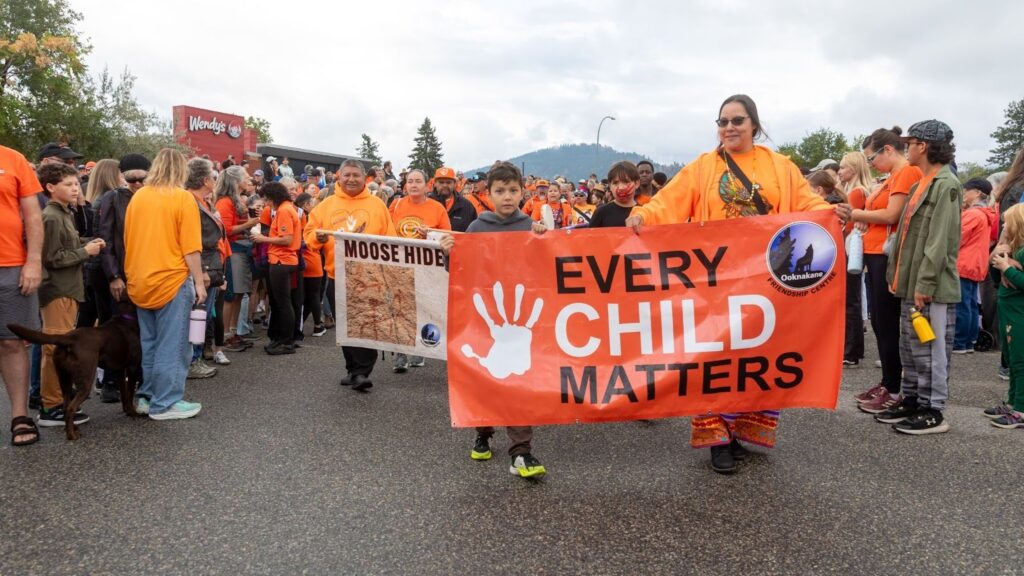
Pentictonite Celeste Jackson, who’s attended multiple Walks and says she’ll continue to do so into the future, came primarily to “support.”
“I’m supporting my fellow brothers and sisters,” she said. “Last year was amazing. It impacted me the most. We had a lot of people here and it made a statement, and that’s important.
“We have to understand our history in Canada, and the sooner we all catch that the better.”
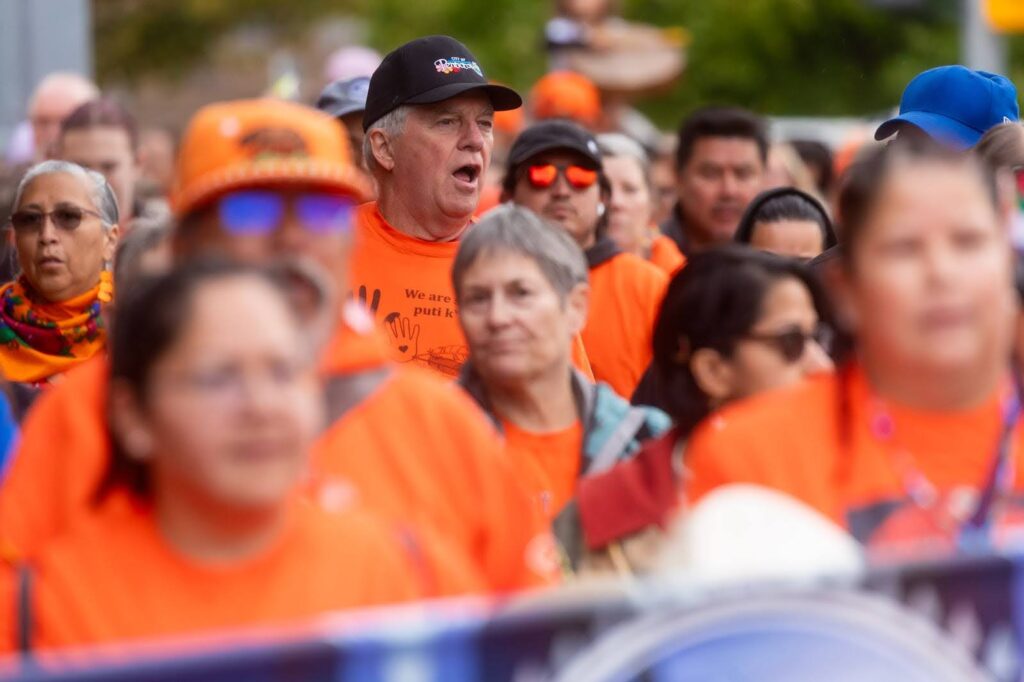
For Princess Margaret teacher Brad Gibson, 2025 was his first Walk. And it won’t be his last.
“I’m lucky,” he said. “I’m a teacher, so I get to work with Indigenous kids and Indigenous support workers. I get to see. I get to be around. And that’s a big part of reconciliation – acknowledging that we’re all flesh and blood.
“But we have to acknowledge that there’s a dark part of Canadian history that needs to be addressed and reconciled.”
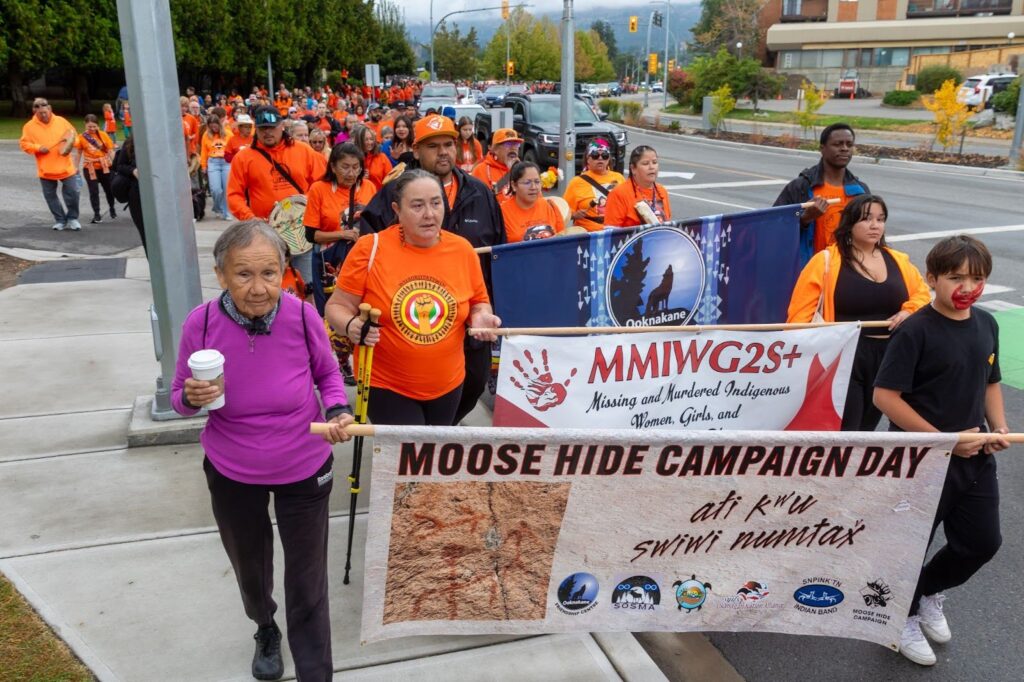
Summerland Mayor Doug Holmes was one of several civic officials to make the trek.
“The Syilx are our neighbours in Summerland as well,” he said. “We share a huge border. So we need to be here.”
Holmes called Sept. 30th a “day of reflection.”
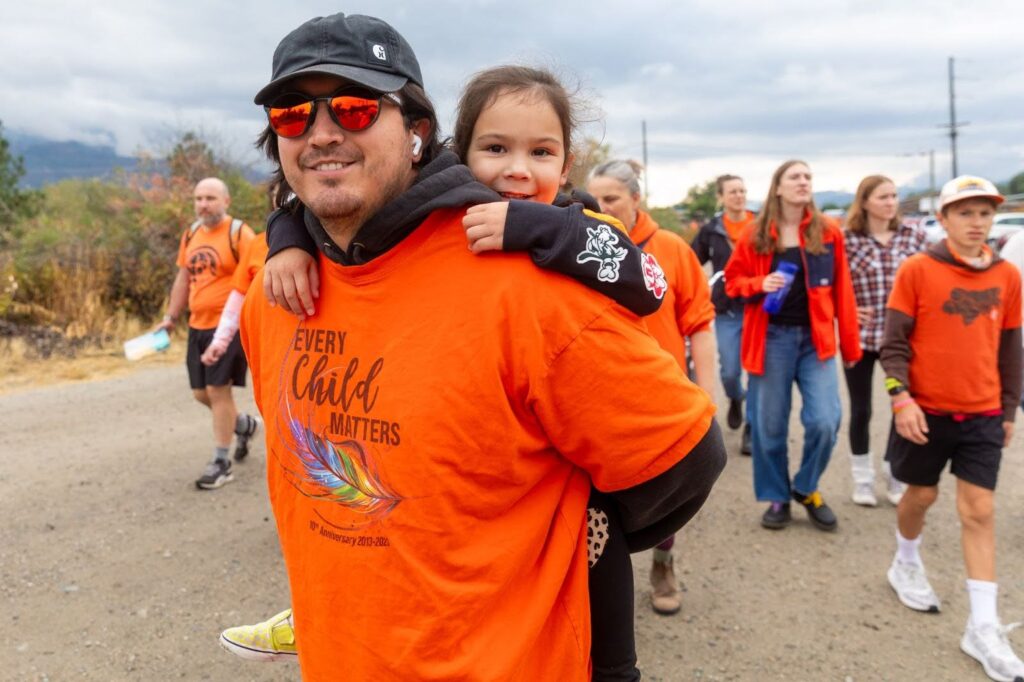
“It’s about acknowledging the truth and creating that path toward reconciliation,” he said.
“And part of that is recognizing the effects the residential school system had on people and remembering and honouring those children who didn’t come home and the impact it’s had on Indigenous communities.”
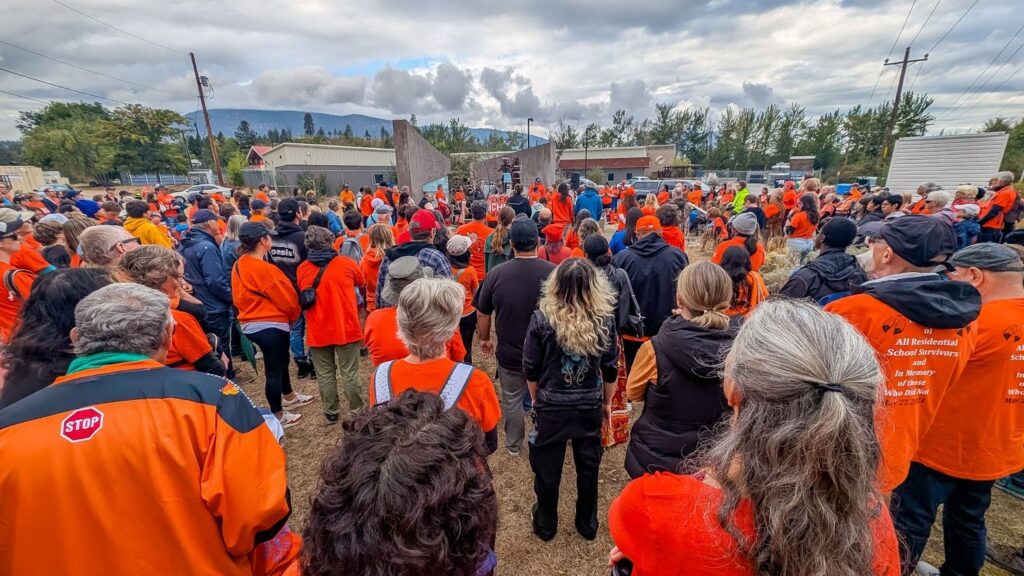
The ONA’s Jennifer Lewis was integral in the organization of the event and acted as MC at the start and at the finish.
We asked her why it’s important to attend Truth and Reconciliation events such as the Walk for Children.
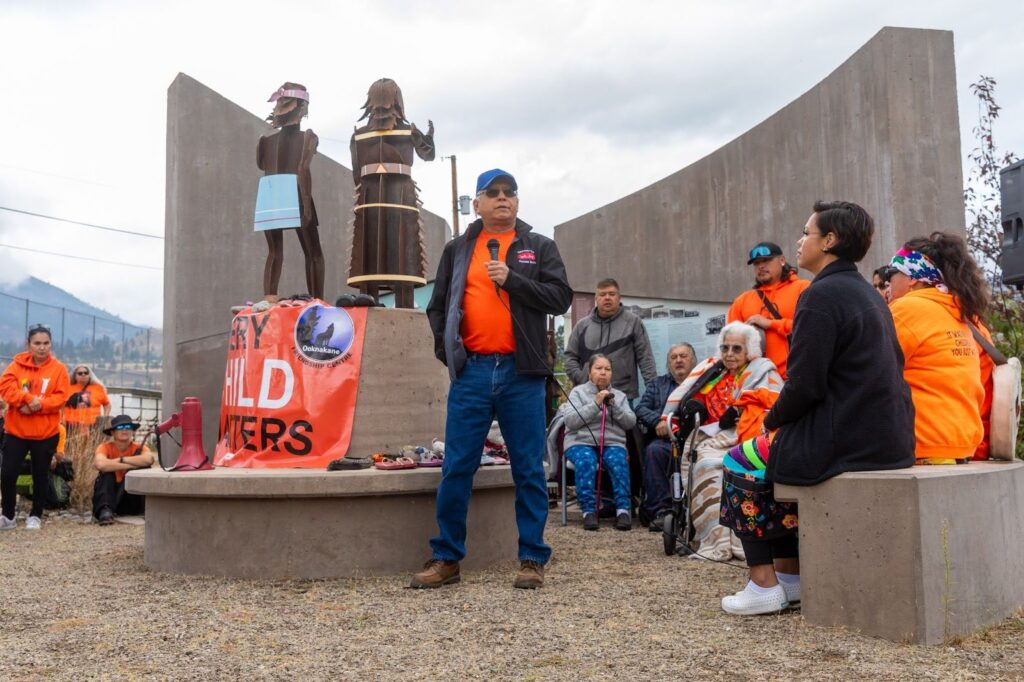
“People are given the day off to reflect on truth and reconciliation, so it’s important that that occurs in some manner,” she said. “Events like this give survivors the opportunity to share what they went through so people can connect in person.
“You hear about all these children but they’re faceless until you see them. Seeing them helps people understand and hopefully become allies.”
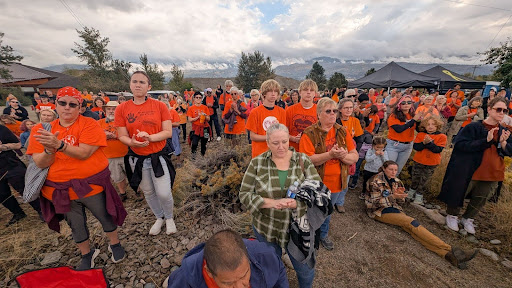
Lewis then spoke specifically about one of the many repercussions of the residential school program.
“Residential schools were very active in removing children from their parents, their families and their language,” she said. “So we struggle today even to teach our children our language. Right now there are less than 100 fluent speakers in our territory. There is no one else in the world who can speak our language.
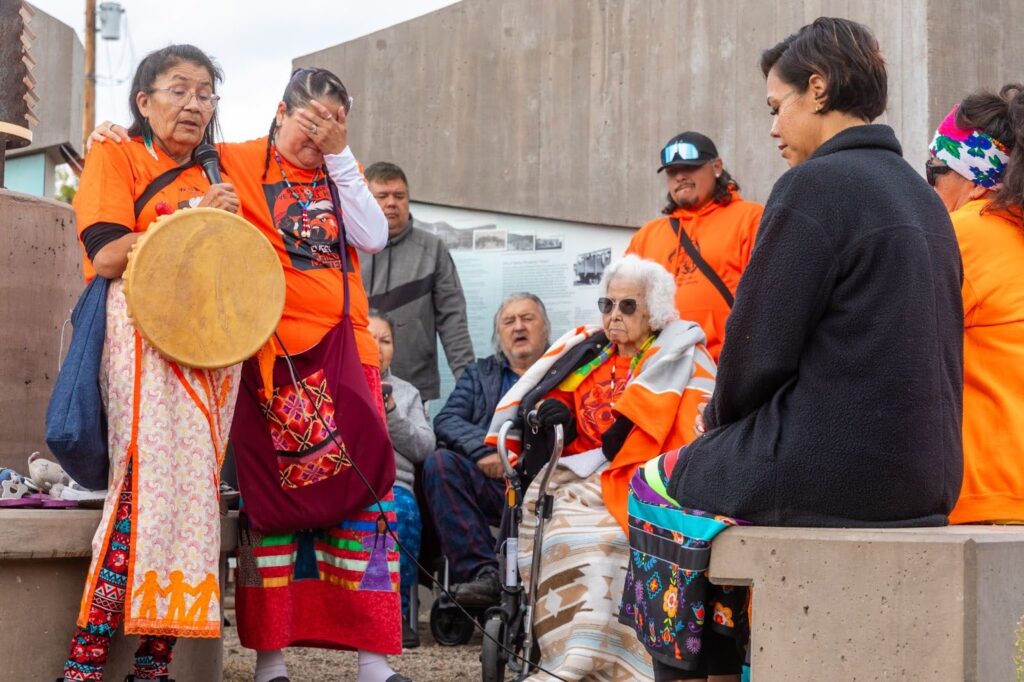
“So now we have a time-limited opportunity for our people to learn. And Canadians need to tell their government to step up.”
For more info on the Walk for the Children, head to the Okanagan Nation Alliance website here.
Oct 2, 2025
Read the Comments +